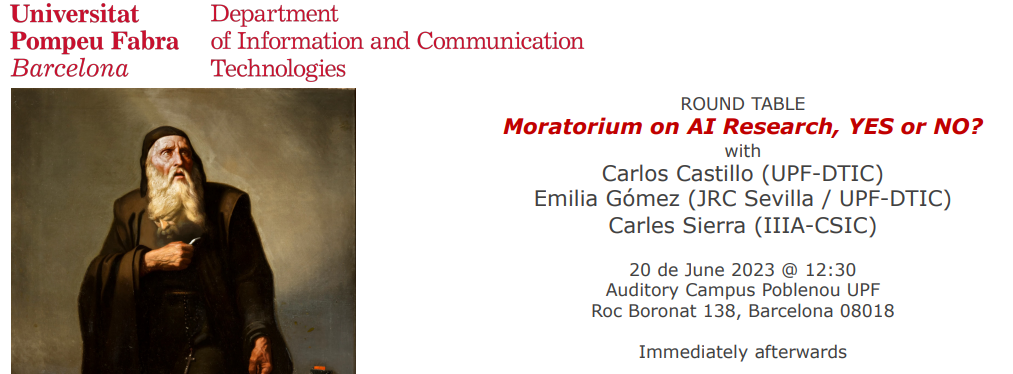The second Maria de Maeztu Strategic Research Program (CEX2021-001195-M) of the Department of Information and Communication Technologies (DTIC) takes place between 2023 and 2026. The website for this program is under construction. You can find some details in this news.
The first María de Maeztu Strategic Research Program (MDM-2015-0502) took place between January 2016 and June 2020. It was focused on data-driven knowledge extraction, boosting synergistic research initiatives across our different research areas.
Carrascosa M, Bellalta B. Decentralized AP selection using Multi-Armed Bandits: Opportunistic ε-Greedy with Stickiness. Symposium on Computers and Communications IEEE ISCC 2019
Carrascosa M, Bellalta B. Decentralized AP selection using Multi-Armed Bandits: Opportunistic ε-Greedy with Stickiness. arXiv pre-print
WiFi densification leads to the existence of multiple overlapping coverage areas, which allows user stations (STAs)to choose between different Access Points (APs). The standard WiFi association method makes the STAs select the AP with the strongest signal, which in many cases leads to underutilization of some APs while overcrowding others. To mitigate this situation, Reinforcement Learning techniques such as Multi-Armed Bandits can be used to dynamically learn the optimal mapping between APs and STAs, and so redistribute the STAs among the available APs accordingly. This is an especially challenging problem since the network response observed by a given STA depends on the behavior of the others, and so it is very difficult to predict without a global view of the network. In this paper, we focus on solving this problem in a decentralized way, where STAs independently explore the different APs inside their coverage range, and select the one that better satisfy its needs. To do it, we propose a novel approach called Opportunistic ε-greedy with Stickiness that halts the exploration when a suitable AP is found, then, it remains associated to it while the STA is satisfied, only resuming the exploration after several unsatisfactory association periods. With this approach, we reduce significantly the network response variability, improving the ability of the STAs to find a solution faster, as well as achieving a more efficient use of the network resources.
Keywords: IEEE 802.11, WLANs, Reinforcement Learning, Multi-Armed Bandits
Additional material:
Related Assets
Department of Information and Communication Technologies, UPF
Grant CEX2021-001195-M funded by MCIN/AEI /10.13039/501100011033


Department of Information and Communication Technologies, UPF
- Àngel Lozano - Scientific director
- Aurelio Ruiz - Program management




